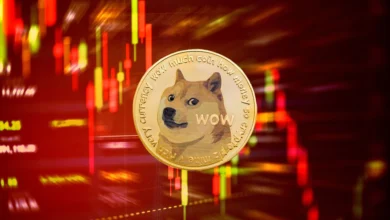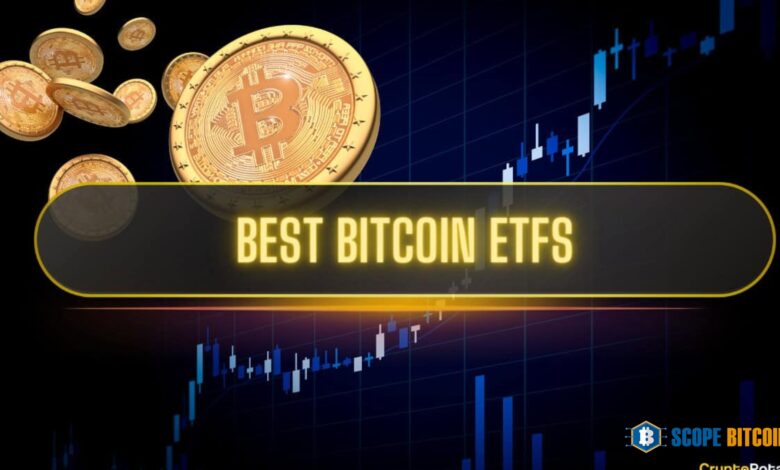
Best Bitcoin ETF to Buy: A Complete Guide
Best Bitcoin ETF to Buy. We are all aware that Bitcoin ETF is a very young concept. It was launched after receiving approval from the US Securities and Exchange Commission in January of this year. However, the fight has been going on for a long time, beginning with the initial ETF application in 2013. In the time after, Canada authorized one Bitcoin exchange-traded fund (ETF) in February 2021, one Bitcoin futures ETF in October 2021, and ten Bitcoin ETFs in January 2024.
But here we are, six months later, and the market is still attempting to establish its position. Traders seek the top Bitcoin exchange-traded funds (ETFs) to invest in, particularly in light of the underappreciated need to make Bitcoin accessible to a wider audience.
Considering that Grayscale lost $16 billion and BlackRock’s BTC ETF has invested around $15 billion since January, we are left to ask which Bitcoin ETFs are the best to buy to diversify our portfolios and easily adopt Bitcoin. How about we get down to business and find out which Bitcoin ETF is the best to buy?
The Best Bitcoin ETF to Invest In
Following this introduction, we will review all the information you need on today’s top Bitcoin exchange-traded funds (ETFs). To help you invest confidently, we’ve compared various exchange-traded funds (ETFs), considering their management fees, Bitcoin prices, and holdings.
1. Grayscale Bitcoin Trust (GBTC)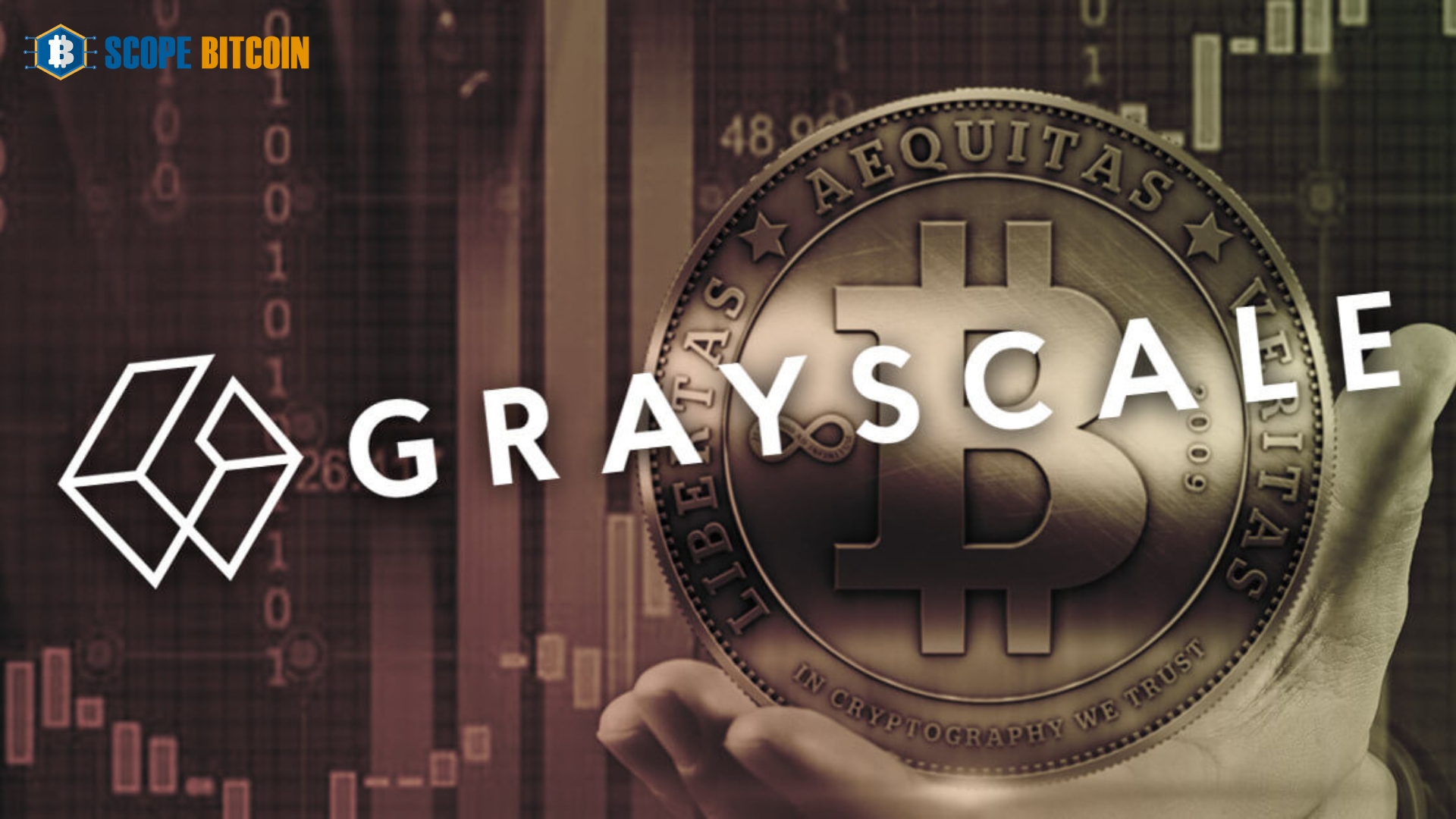
One prominent industry player that has invested all of its money in Bitcoin is the Grayscale Bitcoin Trust. Investors and traders who would rather not deal with cryptocurrency wallets, keep track of keys, or safeguard their money generally will find this product useful. So, anyone wanting to invest in Bitcoin may avoid Grayscale.
In addition, Grayscale Bitcoin Trust had already laid the groundwork for its investors to reap the benefits of higher fees and other perks before the SEC decision.
Grayscale Bitcoin Trust Overview
- Primary Listing Market: NYSE ARCA;
- Net Assets: 19.39 billion;
- Market Price of Bitcoin: $61.73;
2. iShares Bitcoin Trust ETF (IBIT)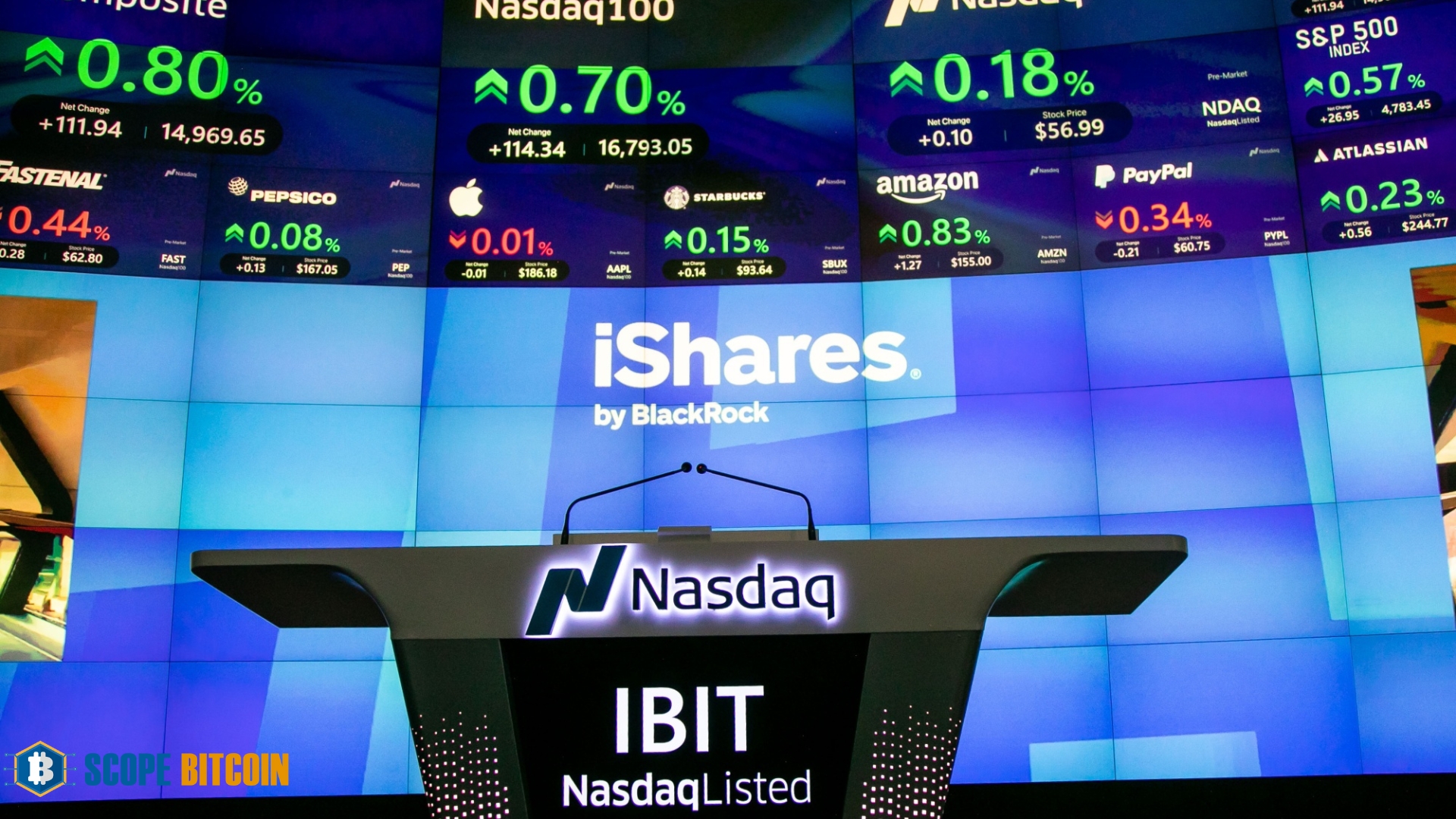
One prominent exchange-traded fund (ETF) recently drawn attention to Spot Bitcoin ETFs is iShares Bitcoin Trust (IBIT). IBIT has an asset allocation approach that eliminates management fees for up to $5 billion in assets, resulting in an increased number of new investors.
In addition, investors can access Bitcoin through an ordinary brokerage account with IBIT, which removes the need for separate accounts for operations and management and, in certain cases, prohibitively high trading fees. Since BlackRock Investments constructed it, no registration is required for iShares Bitcoin Trust (IBIT) under the Investment Company Act. Therefore, the Investment Company Act does not apply to ETF mutual funds.
iShares Bitcoin Trust Overview
- Primary Listing Market: NASDAQ;
- Net Assets: 19.5 billion;
- Market Price of Bitcoin: $38.39;
3. ProShares Short Bitcoin ETF (BITI)
Despite its youth, the ProShares Short Bitcoin ETF has been tracking the daily inverse of the S&P CME Bitcoin Futures Index since June 2022. As a result, if Bitcoin values lose their footing, this Bitcoin ETF may benefit its investors.
In addition, being a short-strategy exchange-traded fund (ETF), ProShares Bitcoin Strategy ETF relies on Bitcoin’s falling price to promote tactical funds that adapt to the market and the digital asset network’s capabilities. A larger return for investors is possible on any given holding day.
Due to the inherent risk in investing in ProShares ETF, substantial reward is also possible. This is not investment advice, and there is no guarantee of future results; therefore, you should conduct your study and investigation beforehand.
ProShares Bitcoin Strategy ETF Overview
- Primary Listing Market: New York Stock Exchange (NYSE);
- Net Assets: $2.115 billion;
- Bonds: 65.64%;
- Other: 24.01%;
- Cash: 10.34%;
- Market Price of Bitcoin: $26.23;
4. Volatility Shares 2x Bitcoin ETF (BITX)
A Bitcoin exchange-traded fund (ETF) that uses futures contracts as leverage makes it easy for investors to trade Bitcoin using borrowed funds. This investment technique carries the inherent danger of not guaranteeing success. But the goal of the Volatility Shares 2x Bitcoin ETF is to return twice as much as the daily change in Bitcoin price.
Volatility Shares 2x Bitcoin ETF Overview
- Primary Listing Market: CME Futures Exchange;
- Net Assets: $1.571 billion;
- Other: 85.42%;
- Cash: 7.48%;
- Bonds: 7.09%;
- Market Price of Bitcoin: $41.95;
5. Invesco Galaxy Bitcoin ETF (BTCO)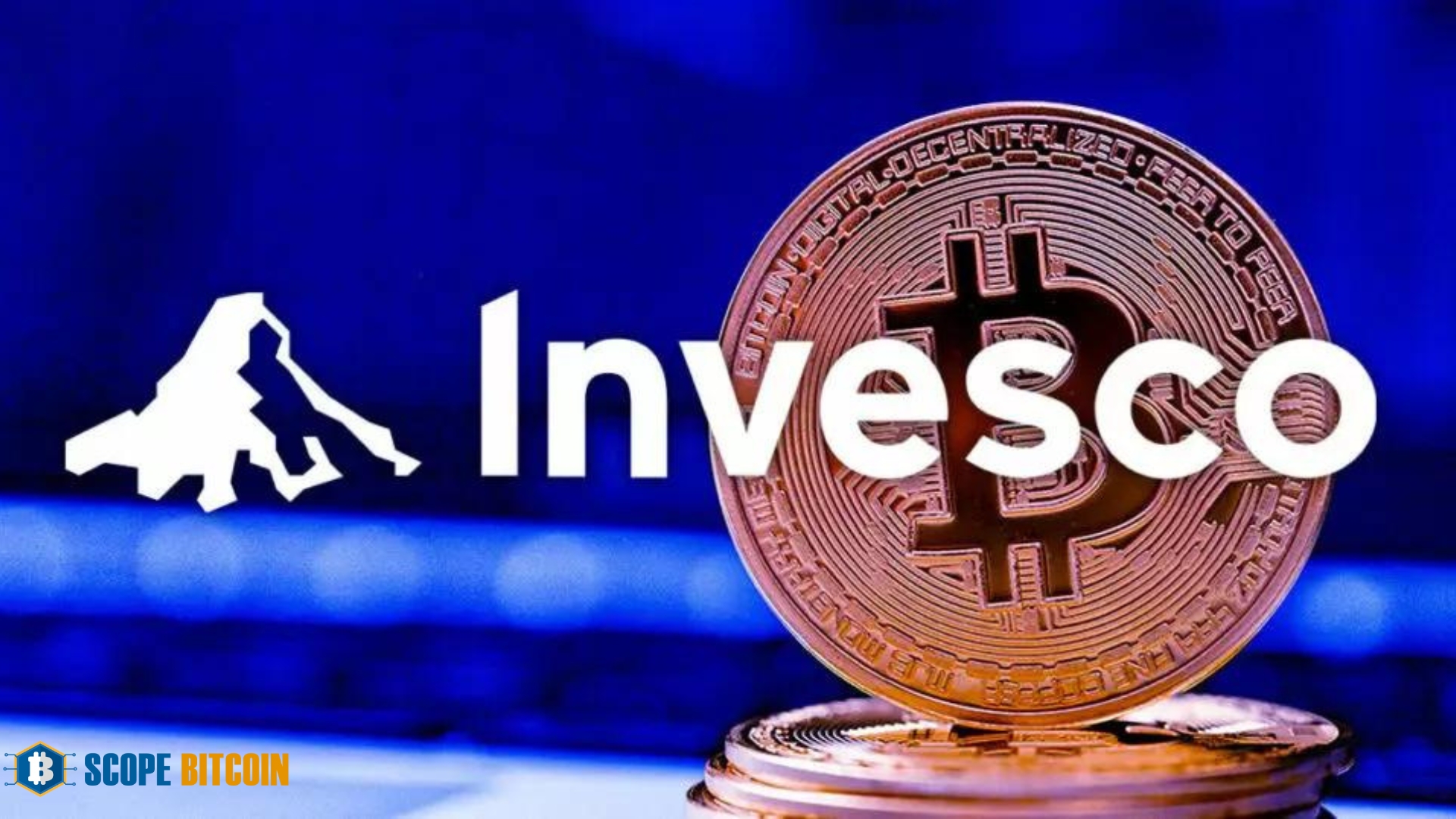
Check out Invesco Galaxy Bitcoin ETF to diversify your investing portfolio with top-notch Bitcoin ETFs. A 0.25% charge is waived for the first six months as one of many advantages this exchange-traded fund offers to new firms. Even though there are other Bitcoin ETFs with no fees, this one is designed for people only interested in trading Bitcoin for a short period.
Invesco Galaxy Bitcoin ETF Overview
- Primary Listing Market: CBOE BZX Exchange;
- Net Assets: $493 million;
- Market Price of Bitcoin: $67.14;
6. Bitwise Bitcoin ETF (BITB)
One of Bitwise’s remarkable qualities as a relative newcomer to the Bitcoin ETF market is its listing on the NYSE Arca platform, which allows it to trade on a premium exchange-traded funds platform.
With a post-waiver charge of 0.20%, BITB is still a legitimate contender thanks to its short-term fee waiver until $1 billion in AUM funds.
Bitwise Bitcoin ETF Overview
- Primary Listing Market: NYSE Arca, Inc;
- Net Assets: $2.482 billion;
- Market Price of Bitcoin: $41.95;
7. ProShares Bitcoin Strategy ETF (BITO)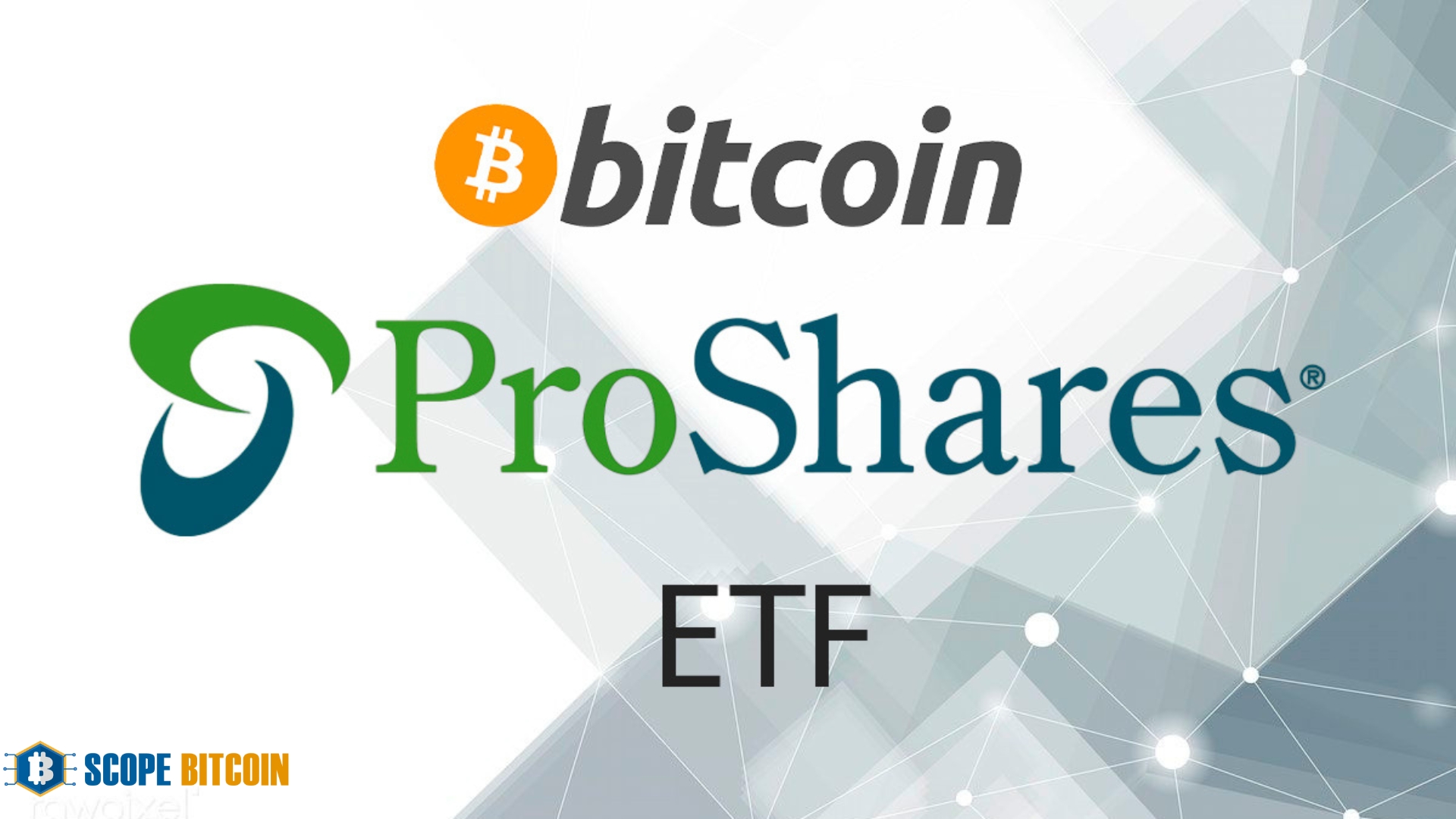
It was an early pioneer and remains a major player in the Bitcoin Futures ETF market, providing products whose value is based on the expected price of Bitcoin. Bitcoin drew around $1 billion in assets in the first few days after its inception, giving a rough idea of its potential.
ProShares Bitcoin Strategy ETF Overview
- Primary Listing Market: NYSE Arca;
- Net Assets: $2.115 billion;
- Other: 24.01%;
- Cash: 10.34%;
- Bonds: 65.64%;
- Market Price of Bitcoin: $25.25;
8. Global X Blockchain & Bitcoin Strategy ETF (BITS)
Bits may be an excellent choice for investors who are seeking growth in the long run. With its easy-to-use BTC futures careful management method, you can trade Bitcoin futures and blockchain stocks simultaneously.
Global X Blockchain & Bitcoin Strategy ETF Overview
- Primary Listing Market: Nasdaq;
- Net Assets: $26.95 million;
- Stocks: 49.10%;
- Bonds: 33.09%;
- Other: 14.59%;
- Cash: 3.23%
- Market Price of Bitcoin: $69.41;
9. WisdomTree Bitcoin Fund (BTCW)
An exchange-traded fund called the WisdomTree Bitcoin Fund tries to profit from the price of bitcoin (BTC) while keeping costs and liabilities to a minimum by just holding BTC. So, it will determine the daily share price by averaging the values of the most important Bitcoin spot exchanges’ aggregated executed trades.
In addition to more conventional asset classes like bonds and stocks, the WisdomTree ETF allows anyone to profit from fluctuations in the price of bitcoin.
WisdomTree Bitcoin Fund Overview
- Primary Listing Market: Cboe BZX Exchange;
- Net Assets: $86 million;
- Market Price of Bitcoin: $71.65;
10. Fidelity Wise Origin Bitcoin Fund (FBTC)
By purchasing funds through various investment accounts (trust, brokerage, tax-advantaged, etc.), investors can passively obtain exposure to Bitcoin’s price through an exchange-traded vehicle.
Fidelity Wise Origin Bitcoin Fund Overview
- Primary Listing Market: CBOE BZX Exchange;
- Net Assets: $11.076 billion;
- Market Price of Bitcoin: $59.48;
What are Bitcoin ETFs?
Investing in exchange-traded funds (ETFs) entails purchasing shares from a company registered with the SEC. Investing in commodities, bonds, equities, and other major asset classes is made possible through these exchange-traded funds (ETFs), which function similarly to mutual funds. Nonetheless, exchange-traded funds (ETFs) are exchanged directly on a stock exchange.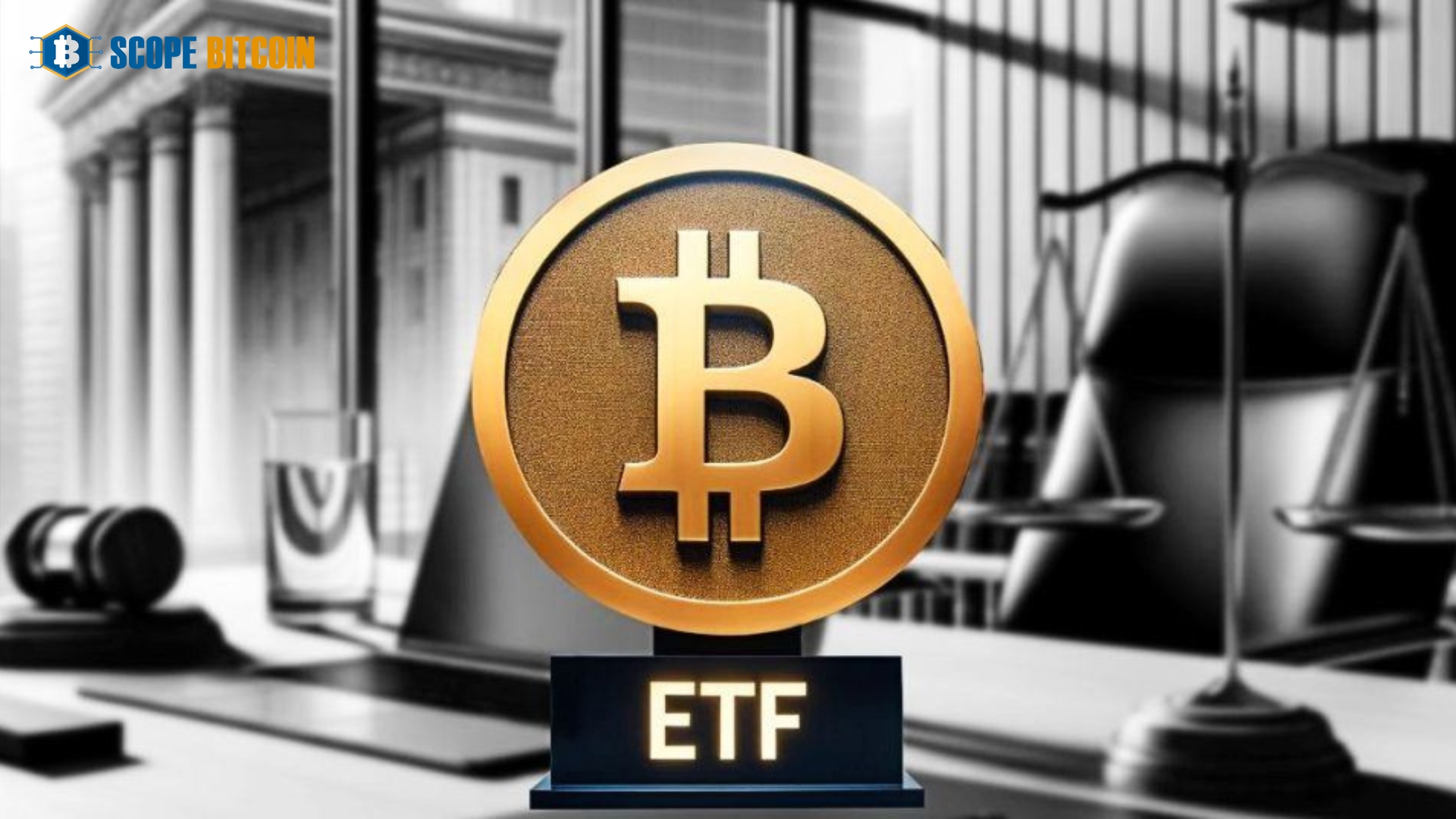
Bitcoin exchange-traded funds (ETFs) are investment vehicles primarily investing in Bitcoin and other cryptocurrencies. Consequently, exchange-traded funds (ETFs) offer direct exposure to Bitcoin by selling shares to numerous investors on the open market.
One more thing: futures contracts and spot Bitcoin ETFs are the two main categories of exchange-traded funds. One new way to invest is through spot Bitcoin ETFs, which purchase shares in a ratio according to the asset’s ownership, in this case, Bitcoins. Consequently, thanks to its increased liquidity and consistent prices, you can put your money straight into Bitcoin.
An exchange-traded fund (ETF) that invests in Bitcoin futures uses derivative contracts tied to the market price to gain exposure to the cryptocurrency. Bitcoin futures are based on a contract with a particular expiration date and time that summarises the purchase and sale prices of Bitcoin. So, many people can reap the benefits of Bitcoin without owning any cryptocurrency.
In general, Bitcoin ETFs prompted more people to invest in digital assets, which ultimately led to Bitcoin’s massive global popularity. You can use the same kind of brokerage account that you would use to buy stocks, bonds, or any other exchange-traded fund (ETF) to acquire Bitcoin ETFs.
Pros and Cons of Bitcoin ETF Investments
There are benefits and drawbacks to investing and purchasing through exchange-traded funds (ETFs), so let’s review them so you’re prepared.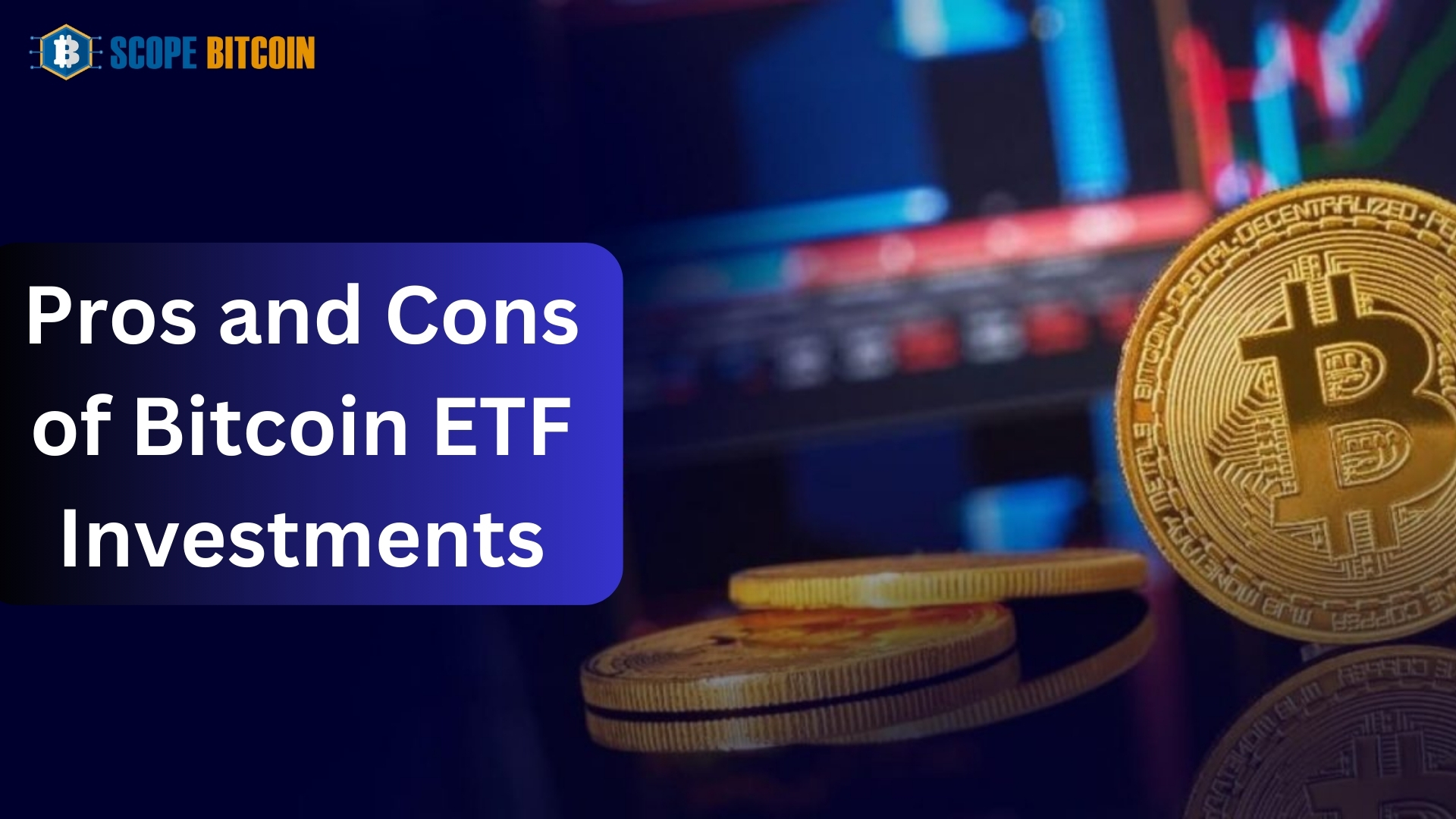
The Pros of Bitcoin ETFs
- For starters, Bitcoin ETFs are regulated, which makes them highly accessible to anyone interested in the best Bitcoin ETFs to buy. Since they are traded on regulated crypto exchanges, they become attractive to all investors.
- Another essential aspect is that it doesn’t require storage, as Bitcoin ETFs provide exposure to prices without using a crypto wallet or an exchange account. In contrast, buying BTC through a crypto exchange requires a wallet to store your purchased Bitcoin.
- When discussing the risks, having Bitcoin ETFs in your investment portfolio could alleviate the risk distribution, especially when there’s a low correlation with stocks or bonds. Also, ETFs offer more liquidity.
The Cons of Bitcoin ETFs
- The first con that comes to our mind is that an ETF removes ownership and could lead to missing some benefits.
- BTC ETFs typically come with higher fees than traditional ones and are often associated with ETF security.
- Then there’s the performance of the underlying asset by the ETF, and often minor tracking errors could greatly influence it.
How to Choose the Best Bitcoin ETF to Buy
When discussing the best BTC ETF to buy, several aspects should be considered, such as the fund’s expenses, the assets under management, liquidity, and others that could significantly influence your strategy.
- Expense Ratio: The lower the expense rate, the more favourable it is for all investors, as it directly impacts the general return.
- Assets Under Management: Again, the higher the AUM, the more trust it brings to all traders and investors, as it directly translates to higher liquidity and trading volume.
- Liquidity: If this is higher, it is a good sign, as it means small bid-ask spreads, thus reducing the trading costs.
The credibility of the selected Bitcoin exchange-traded fund (ETF) is the deciding factor. Consequently, it needs experience managing stocks, bonds, and other commodities through exchange-traded funds. Most of the well-known ones have the resources and expertise to handle a variety of assets with ease, and they’ve proven it with various tracking standards.
Conclusion
Investors seem to be flocking to Bitcoin ETFs to purchase and trade BTCs, likely because of the cryptocurrency’s rising popularity. To make the most informed investment decision, conducting thorough research on spot Bitcoin and futures contracts is important. This will help you identify the best solution and plan for diversifying your portfolio.

